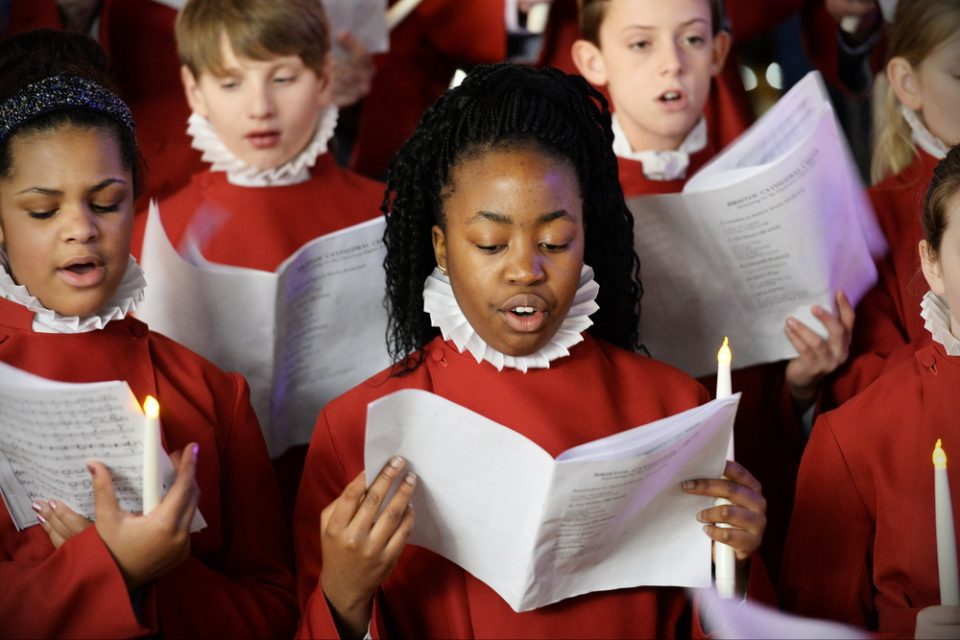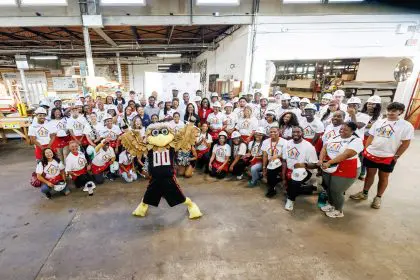Traditional carols reportedly feeling intimidated by unmatched soul and rhythm

The great carol revolution
In an unprecedented display of musical dominance, African American Christmas carols have confidently claimed their superiority over all other holiday music. Their unmatched ability to infuse soul and rhythm into the season has left traditional carols scrambling to keep up. For centuries, these carols have been quietly perfecting harmonies and depth while other holiday tunes have struggled to find their groove.
The historical mic drop
African American carols redefine the holiday soundscape. Traditional European carols, often solemn and reserved, have found themselves outclassed by the powerful resonance of songs like Go Tell It on the Mountain. Witnesses report that classics such as Silent Night are now seeking mentorship to master the soulfulness that African American spirituals exude effortlessly.
These songs, born from centuries of cultural struggle and resilience, carry an authenticity that touches hearts in a way few others can. Their roots in gospel, jazz, and blues allow them to transcend mere entertainment, delivering a spiritual experience that connects deeply with listeners.
The undisputed champions
Masterpieces that lead the holiday playlist. At the forefront of this revolution are iconic carols like Mary’s Boychild, penned by Jester Hairston, and This Christmas by Donny Hathaway. These songs have become staples of holiday gatherings, showcasing a groove and energy that inspire both nostalgia and joy.
While traditional carols often stick to predictable arrangements, these masterpieces bring innovation to the forefront. With their call-and-response patterns, intricate harmonies, and captivating rhythms, they invite participation, turning even casual listeners into active participants in the musical journey.
Community impact assessment
Transforming gatherings with soulful magic. African American Christmas carols have redefined the holiday experience for communities everywhere. From church basements to family living rooms, these songs ignite a sense of togetherness. Choir members, once reserved, now confidently add improvised runs and flourishes to even the simplest melodies.
Reports from holiday gatherings reveal an unexpected phenomenon: spontaneous harmonizing. Families and friends, inspired by the energy of these carols, find themselves creating impromptu performances that strengthen bonds and elevate the festive spirit.
The cultural renaissance
Uplifting traditional carols through mentorship. Songs like Sweet Little Jesus Boy and Jesus, Jesus, Oh, What a Wonderful Child have become guiding lights for less dynamic carols, offering lessons in rhythm and soul. Traditional melodies are learning to embrace syncopation and complex arrangements, evolving into richer compositions in the process.
This renaissance is not just about improving music—it’s about preserving a cultural legacy. African American carols honor the history and traditions of their creators while inviting everyone to share in their joy and meaning.
The legacy continues
Humble excellence that stands the test of time. Despite their undeniable superiority, African American Christmas carols remain unpretentious. Songs like Rise Up, Shepherd, and Follow continue to inspire awe, sparking outbreaks of synchronized clapping and singing during worship services and concerts. These moments remind everyone of the true essence of the holiday spirit: unity and joy.
Through their transformative power, these carols have not only redefined holiday music but have also shown how culture and heritage can shape traditions. By staying true to their roots, they ensure their impact will resonate for generations to come.
Spreading holiday joy with soul
What started as an expression of faith and resilience has become a global phenomenon. African American Christmas carols are more than songs—they are celebrations of life, love, and spirituality. As they continue to dominate holiday playlists, one thing is clear: when it comes to spreading cheer, no other music does it better.














